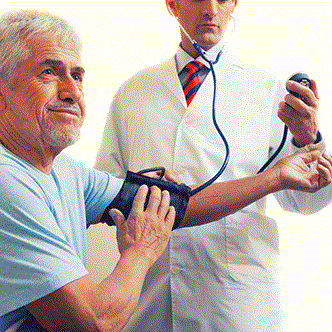
There’s a wealth of research suggesting that sleep apnea and high blood pressure are a dangerous pair. Obstructive sleep apnea, which occurs when breathing is briefly and repeatedly interrupted during sleep, has been shown to increase risk for high blood pressure. Research also shows that high blood pressure, often referred to as the “silent killer,” can cause sleep apnea or worsen breathing in patients already affected by sleep apnea. Sleep apnea and high blood pressure have both been linked to significantly increased risk for serious complications, such as stroke and heart attack.
Since the two conditions can go hand in hand, researchers reviewed the latest evidence to summarize what we know on the issue, and how to treat patients with both high blood pressure and sleep apnea. The review article was recently published in the medical journal Chest.
As expected, they found that obstructive sleep apnea is most common among middle-aged adults 30–70 years old and occurs more frequently in men than women. Many patients with sleep apnea and/or high blood pressure are obese, which may help explain why many patients are affected by both conditions.
Research suggests that anywhere from 30–50% of patients with high blood pressure have sleep apnea. However, sleep apnea is much more common in patients with resistant hypertension, who have tried a variety of high blood pressure treatments but can’t get their condition under control. Resistant hypertension is a major public health issue, as uncontrolled high blood pressure can lead to serious complications.
The good news is that treatment for sleep apnea may aid in lowering blood pressure levels. A simple mask called continuous positive airway pressure (CPAP), which helps promote normal breathing during sleep, has been shown to reduce blood pressure levels. CPAP is especially effective in patients with resistant hypertension, serving as a potential treatment for these high-risk patients.
However, authors encourage future research on the issue, particularly around the impact of sleep apnea treatments on high blood pressure. Although findings are promising, larger studies are needed to assess the benefits of CPAP in patients with high blood pressure. By identifying the most effective combination of treatments for patients with sleep apnea and high blood pressure, the lower patients’ risk will be for potentially serious complications.
To learn more about high blood pressure, visit CardioSmart.org/HighBP. For information about sleep apnea, go to CardioSmart.org/SleepApnea.